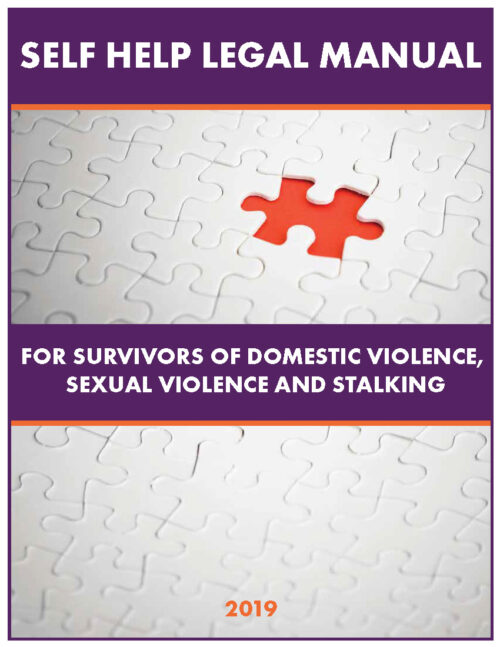Protection Orders
Protection orders, also known as restraining orders, are a legal recourse individuals can seek to enhance their safety. While protection orders are legally enforceable, it’s essential to recognize that a protection order is a document granted by the court that can enhance safety but may not guarantee it. As a victim, only you can determine if obtaining a protection order is the safest course of action for you and your family. If your offender disregards the law or if obtaining an order might escalate the situation, carefully consider your options before seeking a court order.
Our Victim Advocates, available on our 24/7 hotline (330-376-0040), can discuss your unique situation and help you make an informed decision about what to include in your safety plan.
Keeping this in mind, below includes a brief explanation of different types of orders available to victims in Ohio. An in-depth and detailed explanation about everything you need to know about orders can be found in Ohio Domestic Violence Network’s Self Help Legal Manual. Filing for a protection order is free of charge. While it’s not necessary to have a lawyer when applying for a protection order, having legal assistance can be beneficial as advocates can’t provide legal advice.
Civil Protection Orders (CPO)
-
- The below bullet points are a handful of excerpts copied from the Ohio Supreme Court’s general information sheet D-10.01A.
- A CPO is issued by a domestic relations court to protect a victim of domestic violence. A CPO is intended to prevent further domestic violence. It orders someone who has been abusive to do or not do certain things in the future. Domestic violence includes the commission of sexually oriented offenses.
- The Court can order the Respondent to stop hurting or threatening you and your family or household members.
- The Court can use a CPO to order the Respondent to stay away from you for up to five years.
- You can obtain a copy of the CPO Application Form 10.01-D, Parenting Affidavit, information, and application instructions from the Summit County Clerk of Courts located on the first floor of 205 S High St Akron, OH 44308. You can also watch the ‘how to’ videos in the blue box to learn about the protection order process.
- You can petition (ask) the court for a CPO at the Summit County Domestic Relations Court which is located at 205 S High St Akron, OH 44308 between 8a-4p M-F.
- VAP provides advocacy & free child-watching on the 3rd floor of the courthouse.
- Our free services, are able to guide you through the CPO process. Although you do not need an appointment, the court closes at 4 pm, so arriving prior to 2 pm is best as the court hears protection order cases on a first come first serve basis.
- The below bullet points are a handful of excerpts copied from the Ohio Supreme Court’s general information sheet D-10.01A.
Dating Violence Civil Protection Order (DTCPO)
-
- You can obtain a copy of the DTCPO Application Form 10.01-P, and Instructions at the Summit County Clerk of Courts, located on the first floor of the County Courthouse.
- You can petition (ask) the court for a CPO at the Summit County Domestic Relations Court which is located at 205 South High Street Akron, OH 44308.
Juvenile Civil Protection Order
-
- The below bullet points are a handful of excerpts copied from the Ohio Supreme Court’s general information sheet which you can access here.
- A Juvenile CPO is an order against a juvenile under 18 years of age.
- The law (R.C. 2151.34) includes a broad range of violent behaviors – felonious assault, aggravated assault, assault, aggravated menacing, menacing by stalking, menacing, aggravated trespass, and sexually oriented offenses – for which a civil protection order can be obtained against a juvenile respondent. Although these behaviors are consistent with teen dating violence, they may also be consistent with bullying, harassment, and other types of juvenile violence. Additionally, a juvenile civil protection order can be obtained when a juvenile respondent engages in domestic violence behaviors or sexually oriented offenses as defined in O.R.C. 3113.31.
- You can petition the court for a Juvenile CPO Application Form 10.02-B, and instructions at the Juvenile Court located at 650 Dan Street Akron, OH 44310.
- The below bullet points are a handful of excerpts copied from the Ohio Supreme Court’s general information sheet which you can access here.
Stalking and Sexually Oriented Offenses Protection Order (SSOOPO)
-
- According to OhioLegalhelp.org, an SSOOPO, “protects victims of “sexually oriented offenses.” Under Ohio law, sexually-oriented offenses include rape, sexual battery, statutory rape, gross sexual imposition, child enticement, and violent acts committed with a sexual motivation. You can find the complete list of sexually oriented offenses in Ohio Revised Code Section 2950.01.”
- You can obtain a copy of the SSOOPO Application Form 10.03-D, and Instructions at the Summit County Clerk of Courts, located on the first floor of the County Courthouse.
- You can petition (ask) the court for an SSOOPO at the Summit County Court of Common Pleas which is located at 205 South High Street Akron, OH 4430
Criminal Domestic Violence Temporary Protection Orders (DVTPO)
-
- In Summit County, Ohio, the following courts can issue DVTPO’s: Court of Common Pleas – General Division, Akron Municipal, Barberton Municipal, or Stow Municipal.
- The below bullet points are a handful of excerpts copied from the Ohio Supreme Court’s general information sheet which you can access here.
- You ask the Court for a DVTPO when a criminal complaint is filed alleging someone has committed domestic violence or a sexually oriented offense against you.
- The DVTPO orders someone who has abused you to do or stop doing certain things.
- The criminal case must allege the offender committed negligent assault, criminal damaging or endangering, criminal mischief, burglary, aggravated trespass, endangering children, any offense of violence, or any sexually oriented offense against a family or household member. The prosecutor has a form for this purpose. Note: it is common for TPOs to be granted for DV charges but not as common for the other offenses listed.


VAP’s Children Who Witness Violence Drop-In Center

Click Below to Read & Print









